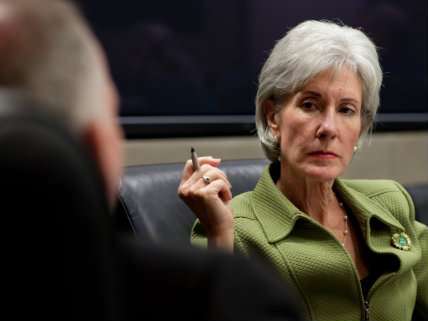Obamacare's Health Exchanges: "full of issues, bugs and technological challenges"

President Obama is in California today. He's giving a speech touting the state's experience with the law so far as proof the Obamacare can and will work.
Well, it'll work…except that the law's insurance exchanges, which are designed to facilitate the bulk of the law's coverage expansion, may not be fully operational, and will probably be kind of glitchy, when they go online later this year. The Wall Street Journal reports:
Teams of technology experts are racing to finish building government websites that will allow people to shop and sign up for health insurance this October. People involved in the effort say to expect some problems, at least initially.
…"Something will be up and running on Oct. 1," when open enrollment starts, said Dan Schuyler, a director at the consulting firm Leavitt Partners and a former director of technology for Utah's health-insurance exchange. "It will be full of issues, bugs and technological challenges," he added.
The biggest problem on the tech side, it seems, is coordinating all of the different databases required to determine eligibility for insurance subsidies and Medicaid. That's not something that's ever really been done before. And Medicaid in particular is a challenge because each state's Medicaid program is unique.
Then there's the user experience, which may not be quite as simple as people have been led to expect:
"This is less likely to be a [travel-booking] experience," said Bruce Caswell, president and general manager of health services at Maximus Inc. "It will be more like applying for a mortgage online." Maximus, based in Reston, Va., is involved in building out Maryland's and Minnesota's exchanges and running call centers in other states such as Connecticut and New York.
Mr. Caswell said some people should be able to easily sign up online, while more "complicated" family situations—such as when a woman is pregnant and eligible for Medicaid, but her husband isn't—might have to be handled manually.
Of course, regardless of whether the exchanges are functional, there's still the question of whether enough lower-income individuals will actually sign up for the law. And there's some reason to suspect that some of them may not. Certainly there doesn't seem to be much enthusiasm for the law right now. The latest NBC/Wall Street Journal poll on the law, released Wednesday night, shows that 49 percent of the public opposes the law, and just 37 percent supports it. That's the highest opposition level since the poll started asking about the law. Meanwhile, 38 percent of respondents think the law will make them worse off—more than at any time since President Obama signed the law in 2010.


Show Comments (17)